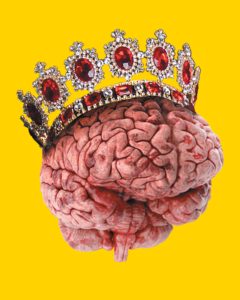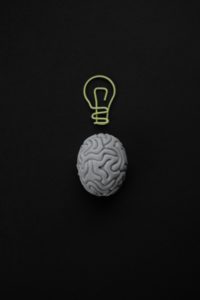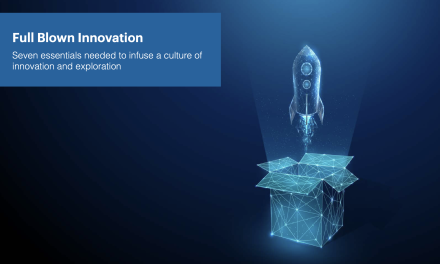Transcript:
- “My brain is fried.”
- “Sorry, what did you just say?”
- “I’ve been listening to this podcast for 20 minutes, and just now realized I haven’t heard a thing.”
Have any of these ever happened to you?
Our brains are remarkable – thousands of times more powerful than the most powerful computers, and capable of doing many different things at once. We’re only aware of just a fraction of what the brain makes us aware of through our consciousness – most of its activity is done without us being aware of it (and, no, it’s absolutely not true that we only use a small percentage of our brain’s power – we use it all, but we’re only aware of a small fraction of it). And yet, our brains have limits. And they have mechanisms to manage what happens when they get near those limits. From headaches and sleep to blackouts and memory loss, the brain protects itself from overload.
An important skill for every person to develop is to know the capability of their own brain, and to maximise this capability as far as possible. Some of the capabilities of our brains are fixed, and each of us has a different base level of brain activity and functioning, but almost all of our brains can be developed and enhanced, from IQ to endurance.
One of the most important capabilities we will need in the future of work is called cognitive load management. This is the ability to discriminate and filter information for importance, and to understand how to maximize cognitive functioning using a variety of tools and techniques.
In cognitive psychology, cognitive load refers to the used amount of working memory resources. There are three types of cognitive load: intrinsic cognitive load is the effort associated with a specific topic; extraneous cognitive load refers to the way information or tasks are presented to a learner; and germane cognitive load refers to the work put into creating a permanent store of knowledge (a schema).
Cognitive load theory was developed in the late 1980s out of a study of problem solving by John Sweller.[1] Sweller argued that instructional design can be used to reduce cognitive load in learners. Much later, other researchers developed a way to measure perceived mental effort which is indicative of cognitive load.[2][3] Task-invoked pupillary response is a reliable and sensitive measurement of cognitive load that is directly related to working memory.[4] Information may only be stored in long term memory after first being attended to, and processed by, working memory. Working memory, however, is extremely limited in both capacity and duration. These limitations will, under some conditions, impede learning. Heavy cognitive load can have negative effects on task completion, and it is important to note that the experience of cognitive load is not the same in everyone. The elderly, students, and children experience different, and more often higher, amounts of cognitive load.
The fundamental tenet of cognitive load theory is that the quality of instructional design will be raised if greater consideration is given to the role and limitations of working memory. With increased distractions, particularly from cell phone use, students are more prone to experiencing high cognitive load which can reduce academic success.[5]
The Wikipedia entry for this in 2022, states the following: cognitive load refers to the used amount of working memory resources. There are three types of cognitive load: intrinsic cognitive load is the effort associated with a specific topic; extraneous cognitive load refers to the way information or tasks are presented to a learner; and germane cognitive load refers to the work put into creating a permanent store of knowledge.
- Intrinsic cognitive load is the effort associated with a specific topic, and refers to the inherent complexity of what is being learnt.
- Extraneous cognitive load refers to the way information or tasks are presented, and is created by the impediments to learning. This type of cognitive load should be avoided where possible.
- Germane cognitive load refers to the work put into creating a permanent store of knowledge, or a schema. This can be a good form of cognitive load, as it indicates that new knowledge is being created.
Each of these aspects of cognitive load is becoming more and more important in a world where ever more information is created and communicated, and we are confronted by ever more complexity in our everyday lives. Add to that the fact that we have many more ways of being distracted, and it’s clear that we have a problem with brain overload. 
The future workforce is going to need to develop skills, tools and techniques to prevent information overload and to filter out the irrelevant noise amongst the useful data. While tools do exist to categorise information and help people locate the right data, the ability to use these tools effectively will become a highly valued skill for employees in the future. People who are able to cope with this will find themselves standing out from the crowd.
This includes the following abilities:
- Quickly process lots of information from different sources, discarding what’s not relevant and keeping what is.
- Learn better. And faster. Integrate new information coherently and change one’s mind when new information arrives..
- Prioritise work that must be done, and be able to do the most important work first, to completion, with minimal distractions.
- Able to remove or ignore distractions, and focus on what is being done.
- Choose between multiple options in a way that maximises productivity.
- Use tools and techniques to remember key information, and have it accessible quickly and appropriately when it is needed.
A heavy cognitive load can have negative effects on task completion, concentration and learning. Heavy cognitive load is experienced more by older people, by children and by students or people learning new skills. With increased distractions in the world today people become more prone to experiencing cognitive loads, which can result in reduced ability to learn, lower levels of productivity and inability to handle stress. We therefore need to develop our abilities in handle cognitive loads.
Developing your ability to manage cognitive load
This involves three key issues:
- Learning to learn better
- Dealing with distractions
- Prioritising
Learning doesn’t stop when we finish formal education and get a qualification. We know this, but how many of us continue to develop our learning abilities? It’s beyond the scope of this article – and even this course in the Future of Work Academy – to do a full learning styles course. We recommend you find one (or more), and continue to improve your ability to learn new information. This might include learning about how to use mind maps, mnemonics and other memory tools. There are some fantastic memory experts who train you to dramatically improve your memory – this will be immensely valuable to you.
To reduce extraneous load in learning, you have to filter out every needless task that is not critical to the learning process and make sure that whenever you are working with new information, you try and access it in easy and understandable ways that are chunked into logical sections. Follow the “simple-to-complex” strategy, ensuring you first master the fundamental principles of a task before you move on to its more complex processes. Start with building blocks, and then develop into complexity.
Develop schemas and frameworks to help you do this. Don’t just learn facts – learn how these facts fit into larger wholes and frameworks. This is how someone achieves expertise. When multiple elements of information are chunked as single elements, there is more working memory capacity available for solving problems and processing information. In addition, schemas can get automated if they are repeatedly and successfully applied. Automated schemas directly steer behaviour and are not consciously processed in working memory. A great example is learning to drive a car, especially with a stick shift. It’s hard and always conscious early on, with many different things to do. Later on, these are almost all automatic.
Learn to present information in much more accessible ways. Use infographics, for example, rather than spreadsheets, bullet-pointed slides or pages of single spaced, Times New Roman size 10 text. How we present information is vital to reducing the cognitive load of everyone around us, including ourselves.
Multi-tasking: Good or bad?
While we’re talking about this topic, let’s just talk a bit about multi-tasking. This is one of the most discussed issues in the workplace, especially as younger people tend to use lots of devices simultaneously, listen to music while working, and seem to update Facebook and Instagram regularly through the day. But is this ability to do multiple things at once a blessing or curse? The science seems to indicate that for almost everyone it isn’t a good thing.
Research has found that just over 2% of people are brilliant at multi-tasking and suffer no drop in performance. They’ve been called supertaskers. This special group was discovered quite by accident by psychologists at the University of Utah. David Strayer and Jason Watson were investigating why talking on a mobile phone in a car is so much more dangerous than chatting to a passenger who’s in the car with you (the reason is that the passengers naturally cease the conversation whenever things are tricky and even intervene to alert the driver to issues). They discovered that about 2% of people had no discernible change in their driving, no matter what the situation – they were able to divide their concentration effortlessly without their performance suffering. Are you in this group? It’s unlikely. And thinking you’re a supertasker doesn’t make you one. Most people think they are, and aren’t.
But even if you’re not a supertasker, multi-tasking can be good for you. In a limited way. Multi-tasking is hardest when the tasks are similar to each other, but a bit easier if they are different. So while chatting on the phone and writing an email is difficult, because they involve similar thinking processes in order to generate meaningful sentences, talking while playing the piano isn’t as hard. It’s also more difficult to multi-task when the tasks require similar levels of brain function. Writing an article for the company newsletter while doing calculations and searching for information on a conference you want to attend all require similar brain functions, and you will be a lot more productive if you do each task to completion in turn, rather than skipping back and forth between them.
 But while doing each of those tasks, if you play a few minutes of a computer game, listen to music or even have a TV show playing in the background, you may even help yourself. Kelvin Lui and Alan Wong from the Chinese University of Hong Kong gave participants a computer task which involved searching for visual information while also responding to certain sounds which could help them with the search. They found people who regularly used three or more different media at a time were better at integrating the information that came in through their ears and their eyes. Since real life involves a lot of integration of different senses this could be a good skill to have.
But while doing each of those tasks, if you play a few minutes of a computer game, listen to music or even have a TV show playing in the background, you may even help yourself. Kelvin Lui and Alan Wong from the Chinese University of Hong Kong gave participants a computer task which involved searching for visual information while also responding to certain sounds which could help them with the search. They found people who regularly used three or more different media at a time were better at integrating the information that came in through their ears and their eyes. Since real life involves a lot of integration of different senses this could be a good skill to have.
Another study conducted in 2015 at the University of Florida surprised even its authors (See academic reports here and here). People were asked to sit on exercise bikes and to cycle for two minutes at a speed they found comfortable. Later they cycled again, this time with a screen in front of them which presented them with 12 different types of cognitive tests, some of them quite hard. In the easy tests they had to say the word “go” whenever they saw a blue star on the screen; in the harder tasks they had to memorise long lists of numbers and then recite them in reverse order. They completed similar cognitive tests while sitting on a chair in a room and the researchers compared the results. When people were sitting on an exercise bike they pedalled 25% faster when given mental problems to solve simultaneously, without doing any worse on the problems. This is a case where distraction seemed to be useful. The authors speculate that anticipation of the tasks might have increased arousal in the brain, which also made the people more efficient at cycling.
So multi-tasking may have its downsides, but it isn’t always bad. There are certain circumstances under which we are better at multi-tasking – when we feel relaxed and when we’ve been doing a mentally creative exercise which encourages us to think broadly.
Read this excellent article: How Multitasking Erodes Productivity And Dings Your IQ
If you want to maximize your multi-tasking skills, choose a low cognitively demanding task and pair it with something that isn’t too risky if your attention slips for a bit. Otherwise, if you’re working on tough tasks that require lots of focus, it’s best to do each one in turn, and minimise distractions or attention splitting.
Further recommended reading: Is multi-tasking bad for you or not
And if you want to be freaked out and never multi-task again, then this is the article for you (take it with a pinch of salt, and in the light of what we said above, but use the twelve points to help judge for yourself how good your parallel processing abilities are).
Companies are looking for people who can handle a high cognitive load
Laszlo Bock, Google’s head of People Operations, was interviewed on the topic: “For every job, though, the #1 thing we look for is general cognitive ability, and it’s not I.Q. It’s learning ability. It’s the ability to process on the fly. It’s the ability to pull together disparate bits of information.” In other words, they’re looking for a candidate’s ability to manage cognitive load.
Cognitive load management will be increasingly important as our modern organisations move further away from the technical problems of the past to more and more of the adaptive challenges of an unknown future. Especially if we are to ensure that our cognitive and collaborative efforts are not wasted on the misalignments in the system and unnecessary information flows that often inundate our organisations into the ineffectiveness that comes with constant capacity overload.
“A world rich in information-streams in multiple formats and from multiple devices brings the issue of cognitive overload to the fore. Organizations and workers will only be able to turn the massive influx of data into an advantage if they can learn to effectively filter and focus on what is important.” – The Institute For The Future





